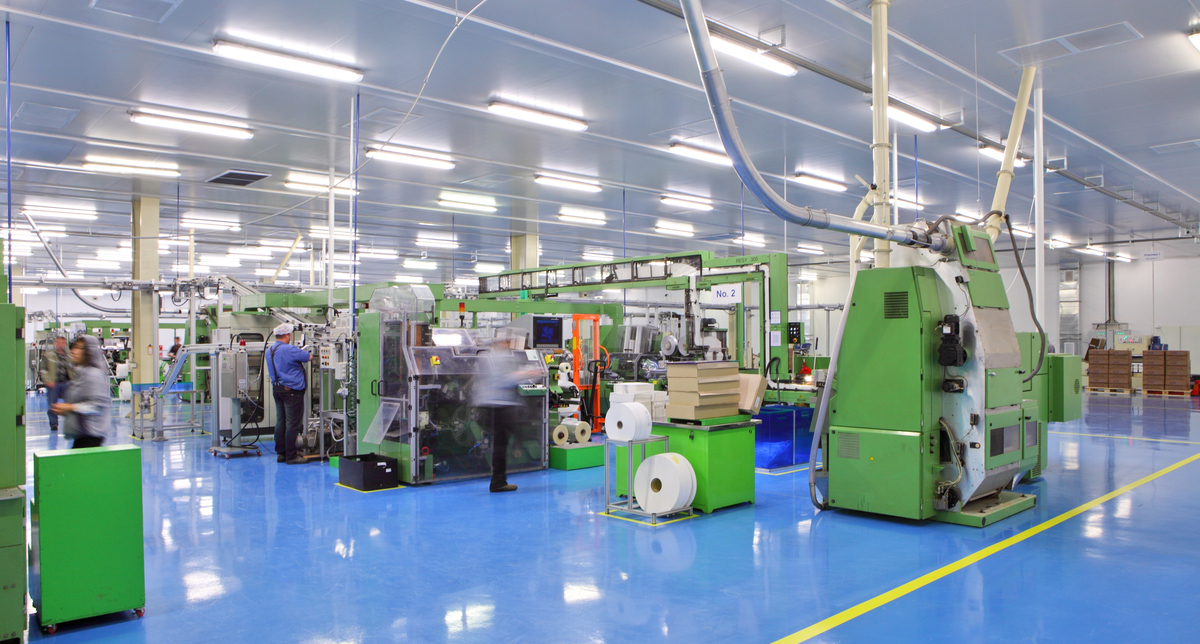
Industrial REITs own, manage and rent out space in industrial facilities. These REITs might have a wide range of industrial property types, but some specialize in warehouses, distribution centers, and pharmaceutical and scientific facilities. A recent trend has seen the conversion of retail real estate into industrial properties, driven by the growing need for warehouses and distribution centers to deliver online purchases.
As of the end of August 2017, the National Association of REITs (NAREIT) reports 12 industrial REITs in the FTSE NAREIT Index with a total market capitalization of $6,368.2M.
Industrial REITs and Economic Conditions
Strong economic conditions favor industrial REITs as the demand for goods rises. The e-commerce blunderbuss Amazon.com is a perfect example of the need for new warehouses and distribution centers to speed the delivery of goods to customers. The result has been an annual industrial rent growth in major markets of 5.5 percent in the last two years. Since 2010, rents in properties favored by e-commerce companies – warehouses and other logistical space – have increased by more than 100 percent in the hottest markets. Forecasts are for a continuation of this growth rate in the next year despite new facilities coming onto the market.
As e-commerce continues to win market share from brick-and-mortar retailers, surplus retail space is being repurposed for industrial use. Each item purchased online requires triple the warehouse space needed for purchases from brick-and-mortar locations because the demand for speedy deliveries creates substantial inefficiencies. This retail-to-industrial trend, bolstered by population growth and e-commerce sales, addresses weaknesses in existing logistical infrastructure by creating distribution capabilities closer to client locations, that is, consumer and business addresses. A lack of land needed for new distribution facilities in the most desirable locations constrains the growth of new industrial-facility construction in favor of redevelopment.
Sector Performance
In the past two years, industrial REIT stock prices have climbed more than 70 percent. It has become the hottest REIT sector. Investment momentum is strong, with $23.8 billion in investment sales during the first half of 2017, according to JLL, a real estate services company. Industrial rents in the Q2 of 2017 hit an all-time high of $5.33 per square foot.
From Sep 2002 through Jun 2017, the cumulative net total return from industrial REITs is 228.24 percent, which equals an average annualized return of 8.39 percent per year. Annualized volatility is 11.91 percent. In the same period, the return from appreciation was 72.35 percent.
Of course, no tree grows to the sky, and the all-time premiums of share price relative to net asset values and adjusted funds from operations is cautionary.
Largest Players in Sector
Here is a summary of the three largest REITS in the industrial sector:
- Prologis (PLD): This is the leader in logistics real estate, with emphasis on high-growth, high-barrier markets in 19 countries. The company leases distribution facilities offering 687M square feet to 5,200 customers in the retail/online fulfillment and business-to-business categories. The company claims to value environmental sustainability, ethics, social responsibility and good governance.
| Characteristic | PLD |
| FFO/Share | $2.80 |
| Price/FFO | 22.59 |
| FFO Growth | 4.31% |
| FFO Payout (Q2 2017) | – |
| Total Return YTD | 22.02% |
| Total Return 1-Year | 23.28% |
| Dividend Yield | 2.78% |
| Debt Ratio | 28.3% |
| Long-Term Rating | A- |
- Duke Realty Corp (DRE): The second largest REIT in this sector owns more than 138M square feet of industrial properties in 21 U.S. markets. Duke develops, builds, leases and manages warehouses and distribution facilities up to 1.2 million square feet. Duke Realty is based in Indianapolis, IN, and its shares trade on the New York Stock Exchange.
| Characteristic | DRE |
| FFO/Share | $1.23 |
| Price/FFO | 24.19 |
| FFO Growth | 4.79% |
| FFO Payout (Q1 2017) | 65.52% |
| Total Return YTD | 14.27% |
| Total Return 1-Year | 8.79% |
| Dividend Yield | 2.56% |
| Debt Ratio | 19.5% |
| Long-Term Rating | BBB+ |
- Liberty Property Trust (LPT): The Number 3, $8.5B REIT serves customers throughout the U.S. and U.K. It develops, acquires, owns and manages industrial properties and office space to the tune of 99 million square feet. The company was founded in 1972 and is headquartered in a Philadelphia suburb. Liberty is a leading developer of “green” The company owns 728 properties renting to 1,700 tenants.
| Characteristic | |
| FFO/Share | $2.50 |
| Price/FFO | 17.04 |
| FFO Growth | 4.68% |
| FFO Payout (Q2 2017) | 115.85% |
| Total Return YTD | 10.05% |
| Total Return 1-Year | 7.97% |
| Dividend Yield | 3.76% |
| Debt Ratio | 31.9% |
| Long-Term Rating | BBB |
The bottom line is that industrial REITs have had strong growth in the last two years that looks likely to continue in the year ahead.
Sources
http://www.nreionline.com/reits/industrial-reits-experience-unprecedented-success
https://www.reit.com/sites/default/files/reitwatch/RW1709.pdf
https://www.prologis.com/about

